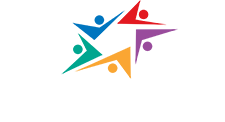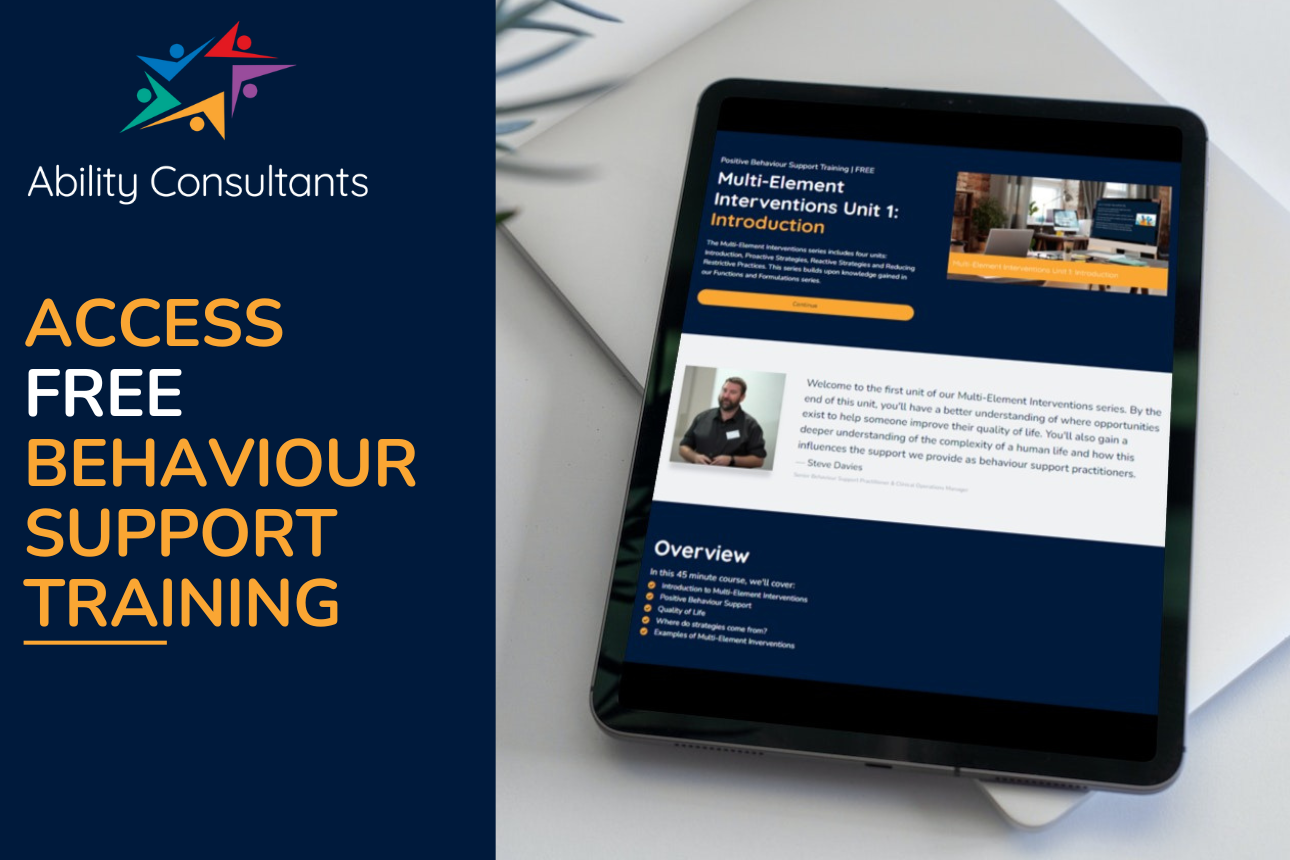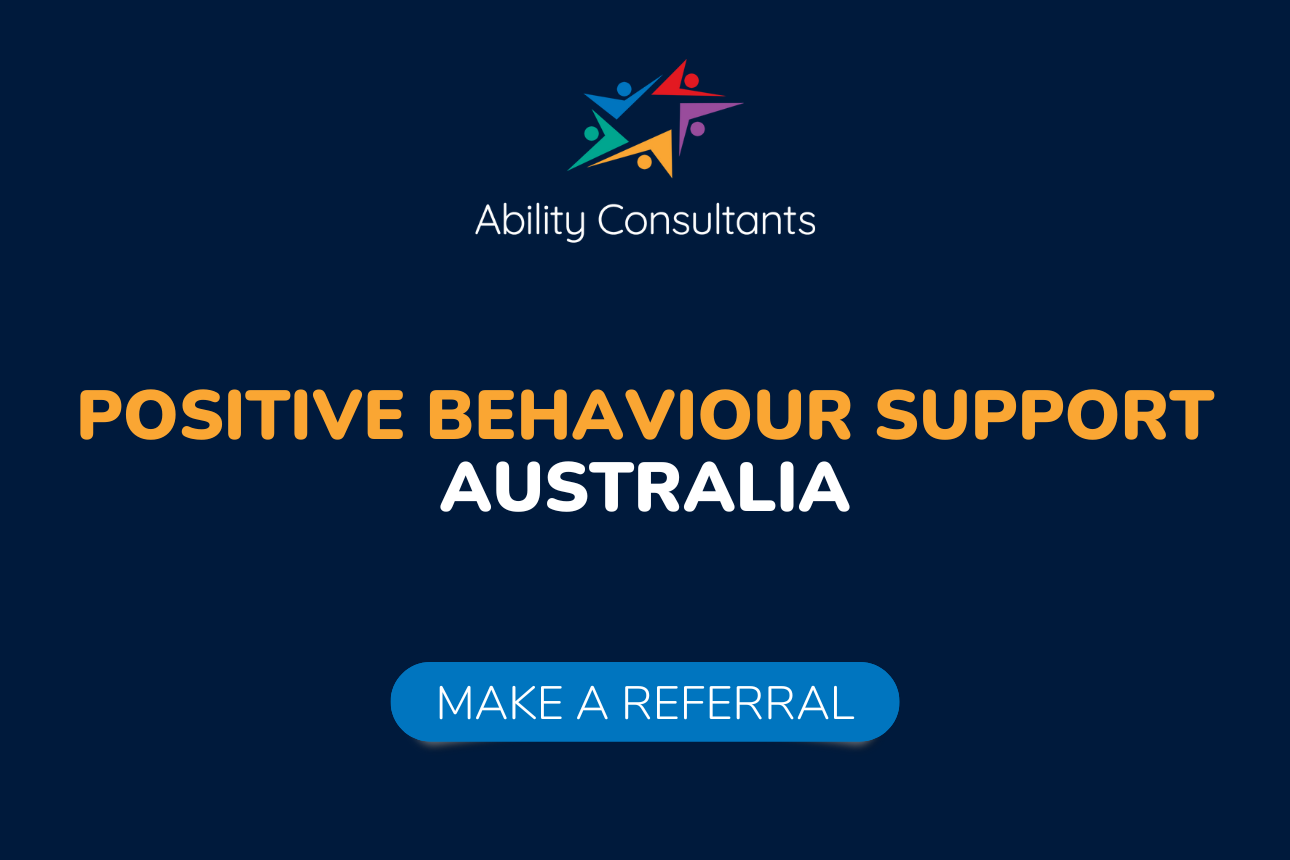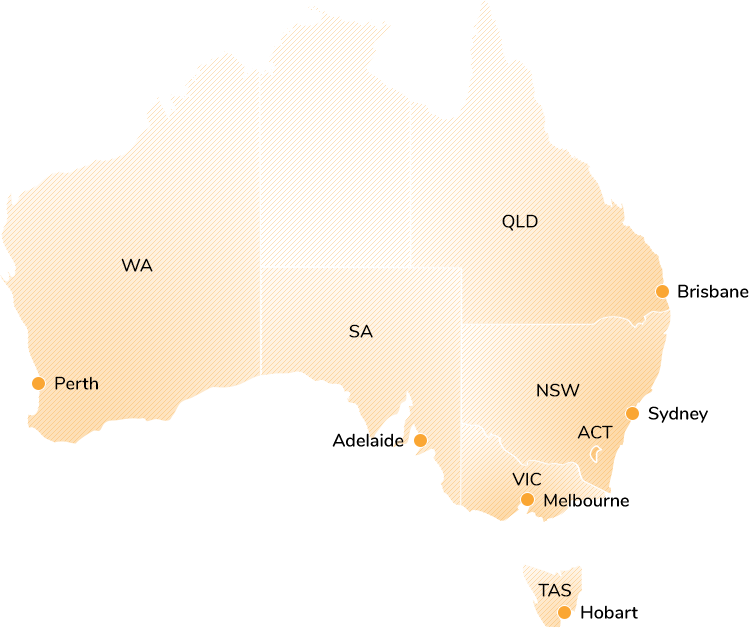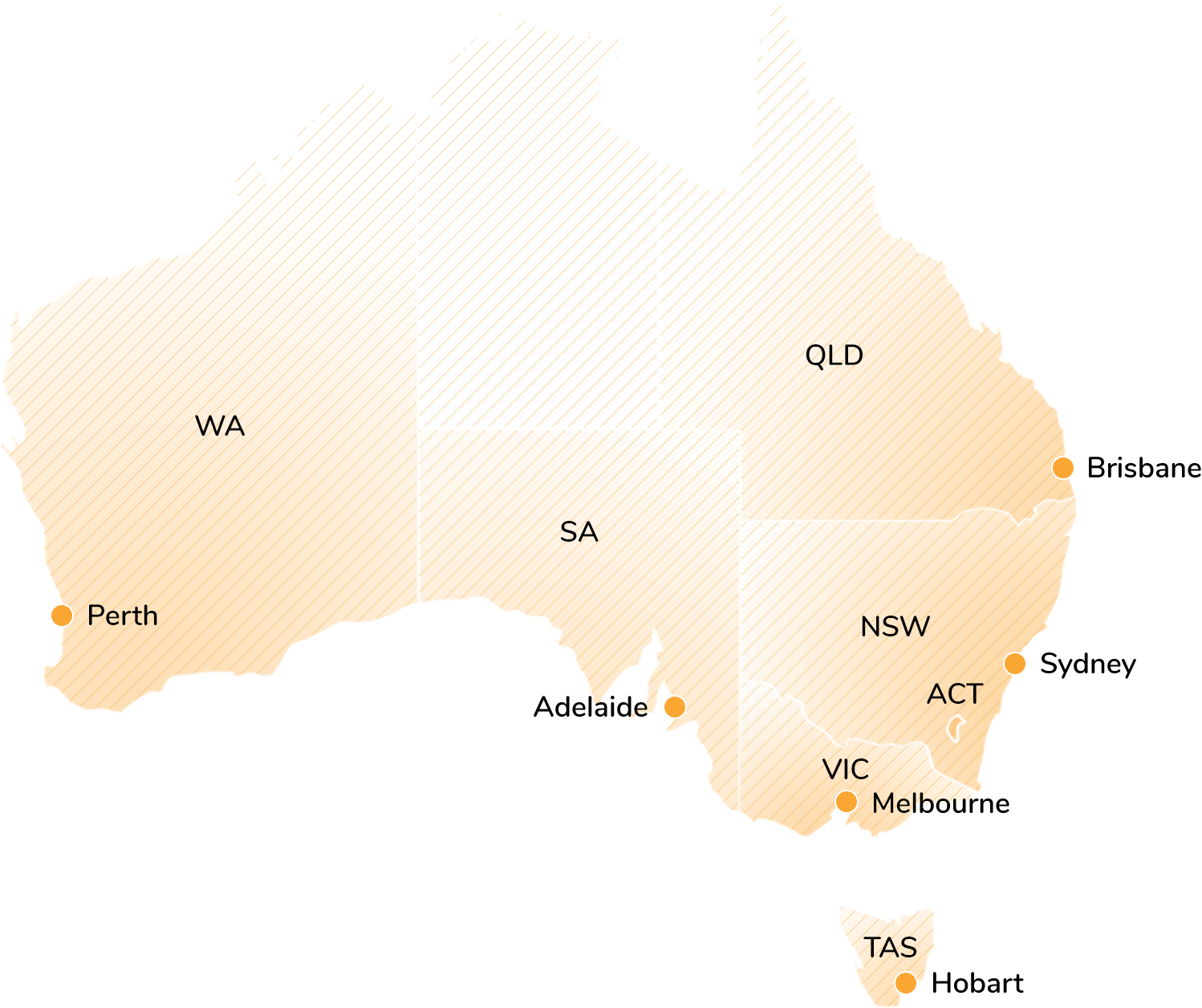We're creating freedom and social connection through easy access to Positive Behaviour Support in Australia

Positive Behaviour Support in Australia
It’s our mission to create freedom and social connection through easy access to Positive Behaviour Support in Australia. It’s important to us that people with disability are afforded the same freedom and social connections that are so easily available and accessed by the wider community.
Positive Behaviour Support transforms lives by improving quality of life through person-centred and evidence-based support. Click here to learn more about Positive Behaviour Support (PBS).
Our CEO, David Ackling-Jones, has worked with people with disability since 1999. He recognised that too many people were ignored, over-medicated, restrained, secluded, cut off from their community or punished because of insufficient positive support.
In 2016, Dave took a leap into the NDIS world and launched Ability Consultants. We’re now a team of over 130 behaviour support practitioners, psychologists and support staff, working remotely throughout Australia.
Positive Behaviour Support in Sydney and NSW
We started in Sydney, delivering Positive Behaviour Support throughout the metropolitan area, from Mosman to Marrickville, Bankstown, Blacktown, Liverpool, Parramatta, Penrith, the Blue Mountains, Baulkham Hills, Chatswood, Manly, Newport, Hornsby and beyond.
We quickly spread to the south coast of NSW, supporting NDIS participants in Wollongong, the Illawarra and Shoalhaven regions and north to the Central Coast, Hunter, Newcastle, Clarence Valley, Northern Rivers, New England and the Central West of NSW.
Positive Behaviour Support in Queensland
With Belinda Thurlow leading the way, we expanded into Queensland, providing Positive Behaviour Support in Brisbane. Now, we support NDIS participants on the Gold Coast, Sunshine Coast, Darling Downs, Wide Bay—Burnett, Cairns and Townsville.
It was here in Queensland that we became more adept at providing Positive Behaviour Support through telepractice, also known as telePBS. The concept of telePBS is not that new in Positive Behaviour Support, with practitioners having always used technology to communicate with stakeholders, but with the need to support rural communities and the challenges of the COVID pandemic, we became more adept at telePBS and developed training for our team across Australia.
Our team of behaviour support practitioners in Queensland continues to grow under the leadership of Vanessa Bell, who you’ll hear from below.
Positive Behaviour Support in Victoria, Tasmania, South Australia and Western Australia
2023 was a big year for our team — we welcomed behaviour support practitioners to our team in new areas including Melbourne, Tasmania, Adelaide, Port Pirie, Perth and more. We continue to nurture our teams in new states, providing ongoing support as they learn more about their regions and how we can best serve these communities.
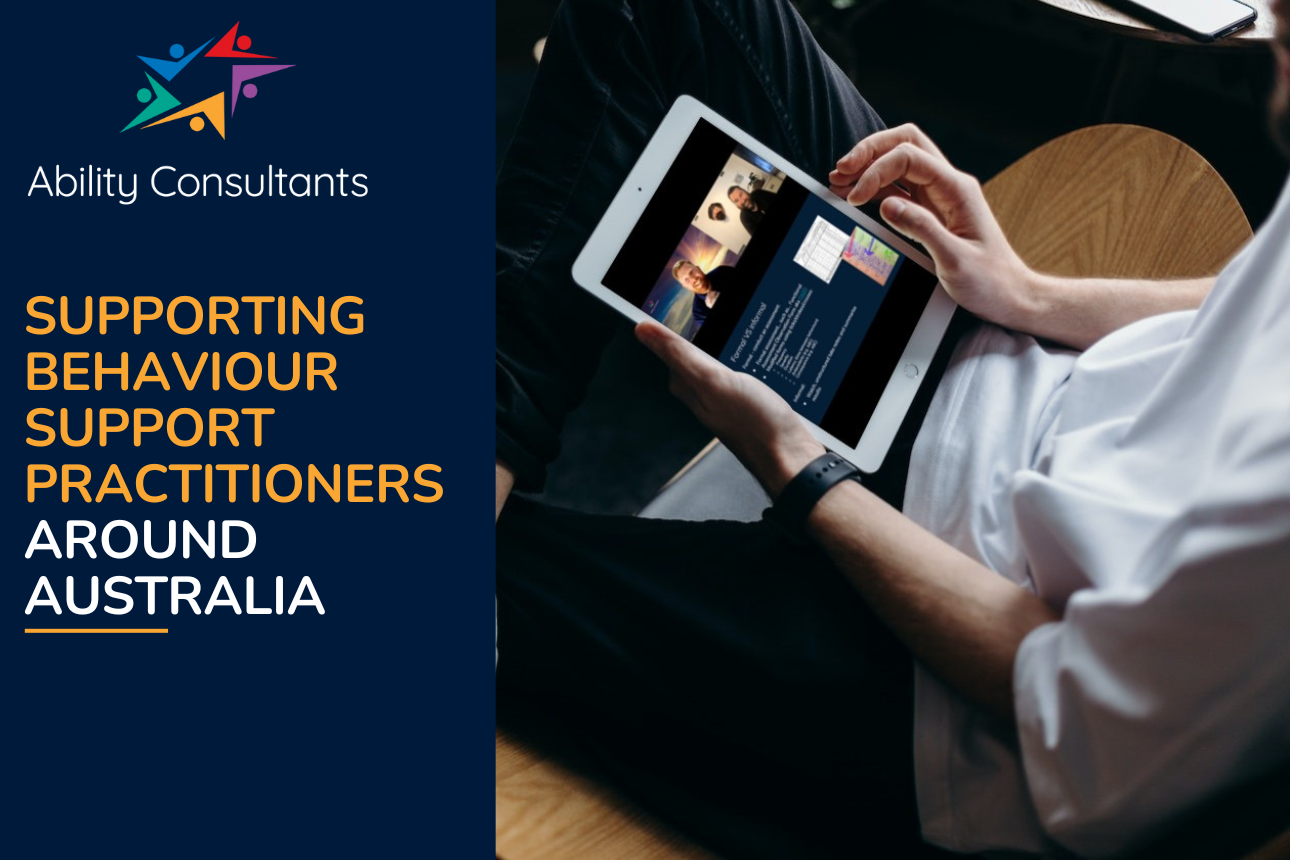
Supporting behaviour support practitioners throughout Australia
Mentoring, training and the PBS Capability Framework
Even though we’re a fully remote team, every member of our team is supported. Each Ability Consultants team member has access to their own mentor as well as online and face-to-face training, peer support, how-to guides and handbooks. Every new behaviour support practitioner benefits from supportive onboarding, induction and a support group for new team members.
Our clinical team can also turn to the restrictive practices team for all their questions about restrictive practices as well as our psychology team for psychology-related questions.
Each practitioner meets with their mentor weekly. They set their own agenda, with their mentor acting as guide, sounding board and coach, to support them as they learn, grow and upskill. Practitioners might raise clinical questions, such as asking for advice about a behaviour support plan or assessment. At least once a quarter, mentees discuss their learning and development goals with their mentor and we look at how we can best support them in reaching their goals.
We have a learning and development manager who supports all practitioners during induction and helps practitioners to navigate the NDIS Quality and Safeguards Commission PBS Capability Framework, enabling practitioners to obtain their recognition as core, proficient, specialist and advanced PBS practitioners.
Every member of our team has access to online behaviour support and leadership training, with topics including Communication Access, Safer De-escalation, Safer Lone Working, Promoting Human Rights and Reducing Restrictive Practices, Understanding Trauma, Deliberate Practice and Scaffolding, just to name a few.
In addition, our Centre for Excellence also offers free training for all behaviour support practitioners around Australia, including our Functions and Formulations series and Multi-Element Interventions. You can find our free Positive Behaviour Support training here, it’s available to everyone!
Regional Champions group
We recognise that Australia is made up of diverse communities, and we appreciate that practitioners know their local communities and understand what is important to them and how we can best be of service.
We wholeheartedly support our PBS practitioners, wherever they are in Australia. To further support our practitioners in new communities, we created our Regional Champions group.
Our Regional Champions group is all about learning from each other, our regions and creating human connection.
This means that we don’t have set targets — we invest in a person in an area and build a practice around this. We have a goal of being established in more places, not just starting up in new places so we can have an impressive amount of pin drops on a map.
Meet our PBS Regional Champions
We have quite a few Regional Champions throughout Australia and today you’ll hear from six of our wonderful Regional Champions, including Alex Lee in Newcastle, Stephen Holmes in Illawarra, Vanessa Bell in Brisbane, Hayley McRae in Mudgee, Patrick Rundle in Perth and our Business Development Manager, Belinda Thurlow.
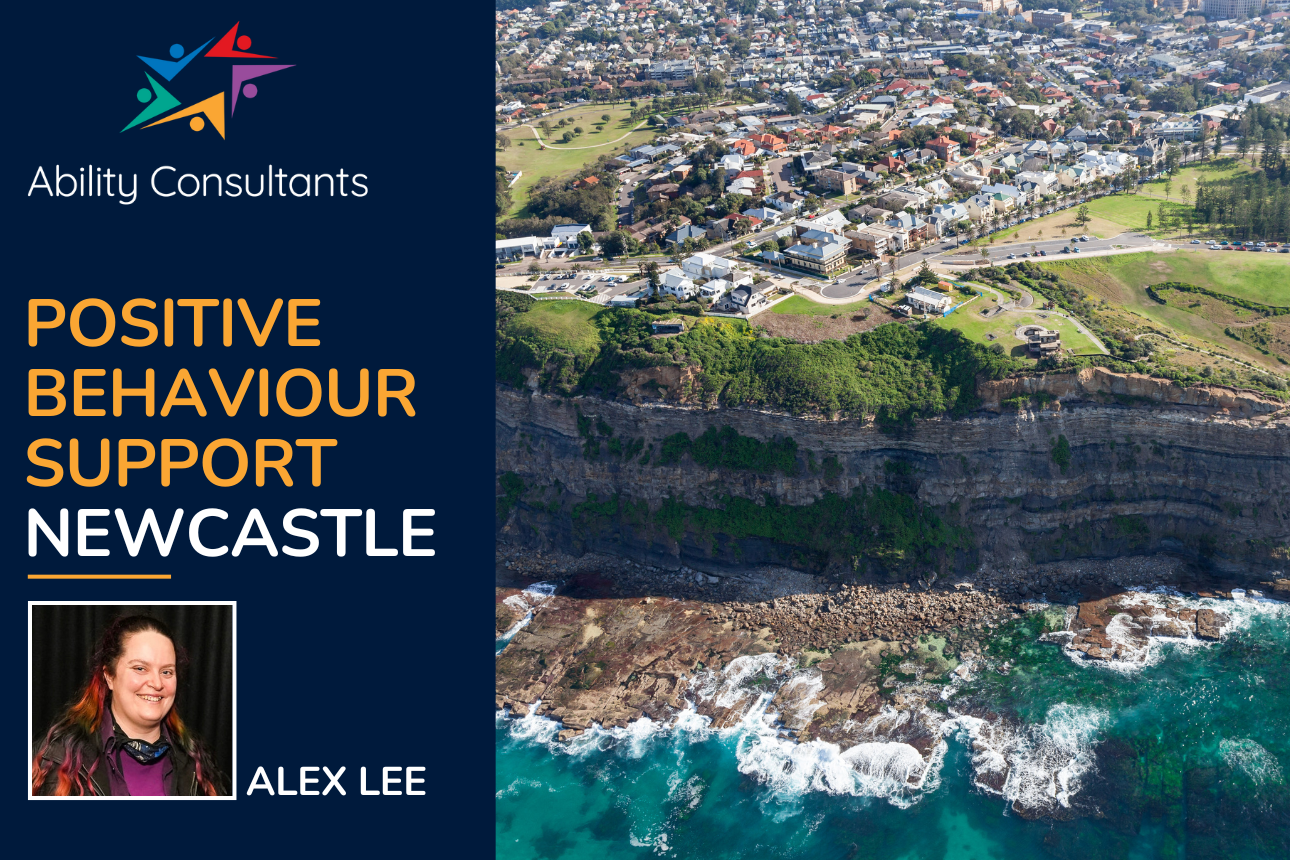
Alex Lee, Behaviour Support Practitioner in Newcastle, NSW
Hi Alex! Tell us how the Regional Champions group has helped you find your feet in Newcastle?
When I joined Ability Consultants, we hadn’t been delivering services in my local area for very long and only had two other clinicians living in my region. Joining the Regional Champions group allowed me to learn from others’ experiences in developing regions, building relationships and networks and how to utilise the existing connections that I have made over the years of working within the sector.
Tell us about the NDIS community in Newcastle.
The NDIS community in Newcastle is varied and expansive, while still having the aspects of a close-knit community. As one of the pilot locations, being one of the first areas to make the change to the NDIS, many parts of the community and providers are well-established and interconnected.
How do you serve your local community as a behaviour support practitioner?
In a connected community like Newcastle, word-of-mouth plays a big role in people connecting with services. But, this fits well with our approach of “attraction, not promotion”, building genuine human connections. By continuing to do what I’m passionate about, providing quality, person-centred Positive Behaviour Support, this can translate into word-of-mouth referrals and allow me to support more people in our community to access the benefit of PBS.
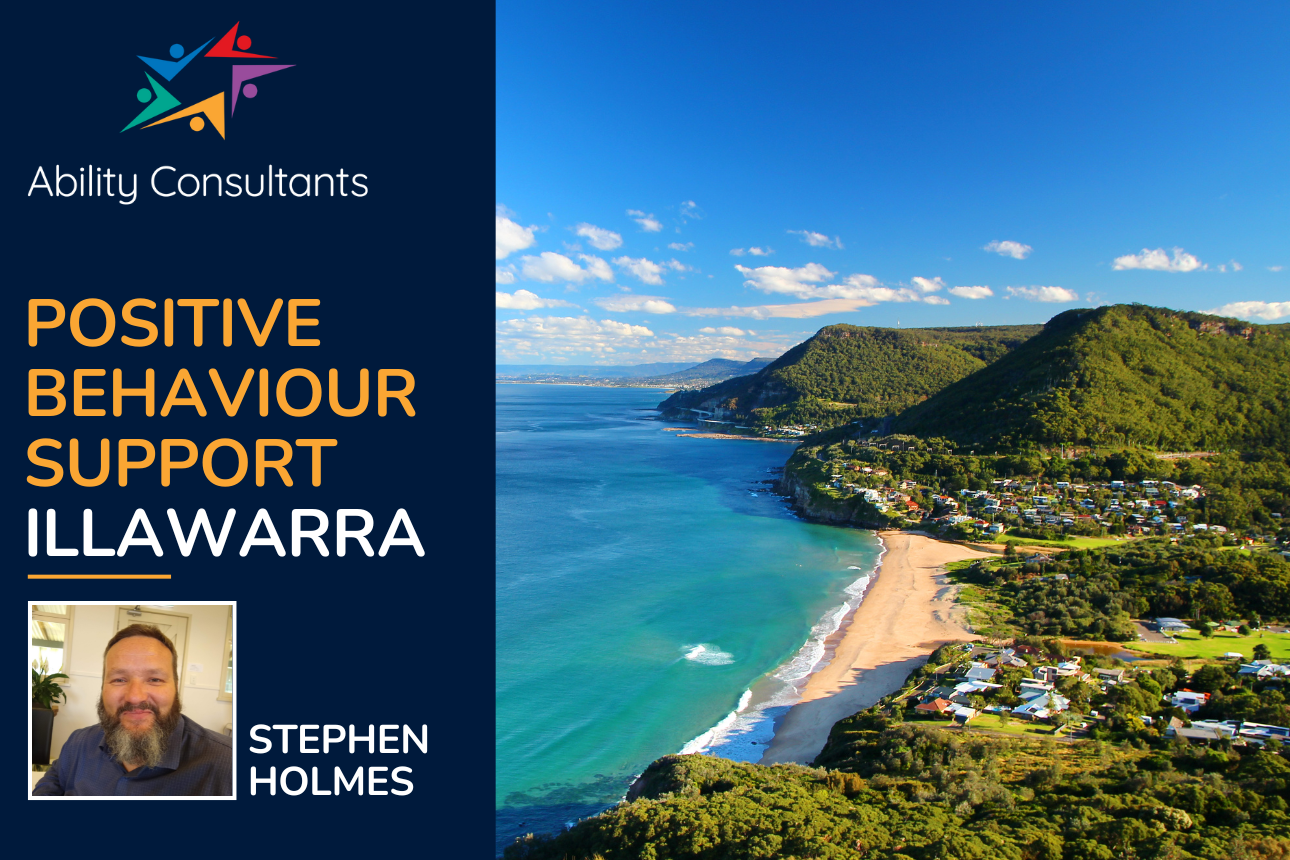
Stephen Holmes, Behaviour Support Practitioner and Team Leader in Illawarra, NSW
Hi Stephen! Tell us about the unique circumstances facing the team in the Illawarra region of NSW.
The Illawarra, Wollongong, is still pretty much a big small town. This means that relationships matter, that authenticity and follow-through matter, personal and organisational credibility matters.
I started in 2019, before the world changed, as an experienced practitioner looking for a new model of service delivery. We’ve grown as an organisation and as a team on the basis that doing good behaviour support builds relationships and builds credibility in the community.
The region itself has a mix of very established community-based organisations, new NDIS providers from Sydney and beyond, and lots of complex clients with comorbid disability and mental health conditions.
Its diversity and natural beauty keep drawing people to the area and practitioners into our organisation — which is great for me, I’m learning from and being inspired by everyone!
How do you support behaviour support practitioners in the Illawarra region?
Genuinely prioritised, client-focused 1:1 mentoring is key. Making time to share your thoughts and hear each other is supremely important as well as taking deep dives into functional assessment and implementation of innovative practices.
Add to that some time with colleagues coworking at a local cafe, occasional social get-togethers and team planning, and the crucial sharing of experiences about our work. Special mention to Natalie Lofty, the other regional Team Leader, who has excellent skills at keeping track of the who’s who, which helps me lead the what and why.
Why is Positive Behaviour Support important to you?
I like helping people — I also like helping people help people. If you apply your curiosity and empathy to someone’s life or situation, generally speaking, you’ll learn something, or get to enjoy their success or gain something of lasting value.
It’s kinda highbrow, but there is a Latin phrase I think about a lot, “labor ipse voluptas” — literally “the work is the reward”. I often talk about curiosity and empathy as the main values that get me out of bed and into the work.
All behaviour is communication — so positive behaviour support is just high-level listening: “What is this person trying to tell me, tell us?” Listening is the most humane act available to us. That’s the ”why” I care about.
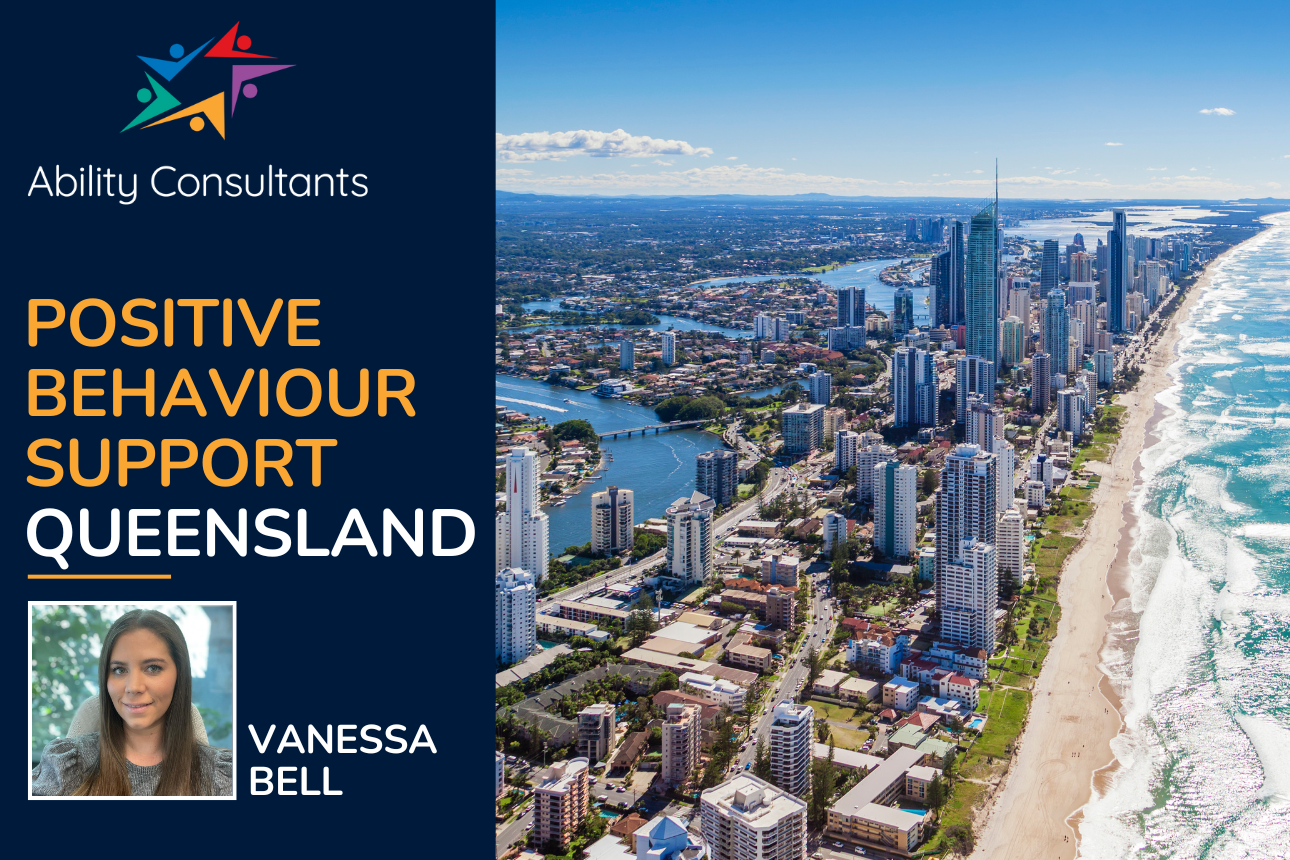
Vanessa Bell, Behaviour Support Practitioner, Team Leader and Clinical Lead, QLD
Hi Vanessa! Not only are you a Regional Champion in Brisbane, but you’re also the Queensland Clinical Lead. How does Positive Behaviour Support differ in Queensland compared to New South Wales?
Queensland can be described at times as having a small town feel throughout. I think this is prevalent and positive, as it means that supportive networks are often focused on face-to-face contact and maintaining human connection with others.
Some key differences in behaviour support in Queensland are related to restrictive practices, restrictive practice approval processes and authorising bodies. Whilst there are 5 restrictive practice subtypes defined at a national level, in Queensland we have a 6th restrictive practice, which is, containment.
There is also a difference in geographic reach when connecting participants with practitioners, because our state is so large, at times we offer a combination of telePBS and face-to-face visits.
Queensland covers a vast geographical area. How does telePBS work for NDIS participants in rural or remote parts of Queensland?
We want to ensure that people in even the most remote communities in Queensland are able to access Positive Behaviour Support, and one way which we approach this is through telePBS.
This is achieved through having regular online meetings with an individual and their key stakeholder group. For some of our younger participants, this can be a more effective approach than face-to-face observations, as the practitioner is not a variable in the environment and is able to observe routines in live time. As often as possible, we try to maintain some face-to-face contact with our regional and telePBS participants, by organising regional trips to spend time with them in person.
You’ve been to a number of networking events in Queensland — what do you hope to achieve when you are present at these events?
My primary goal is to connect with our community and be as useful as possible in understanding their unique situation, and offering support in the best way we can within a PBS role, or referring them to the most suitable support for them.
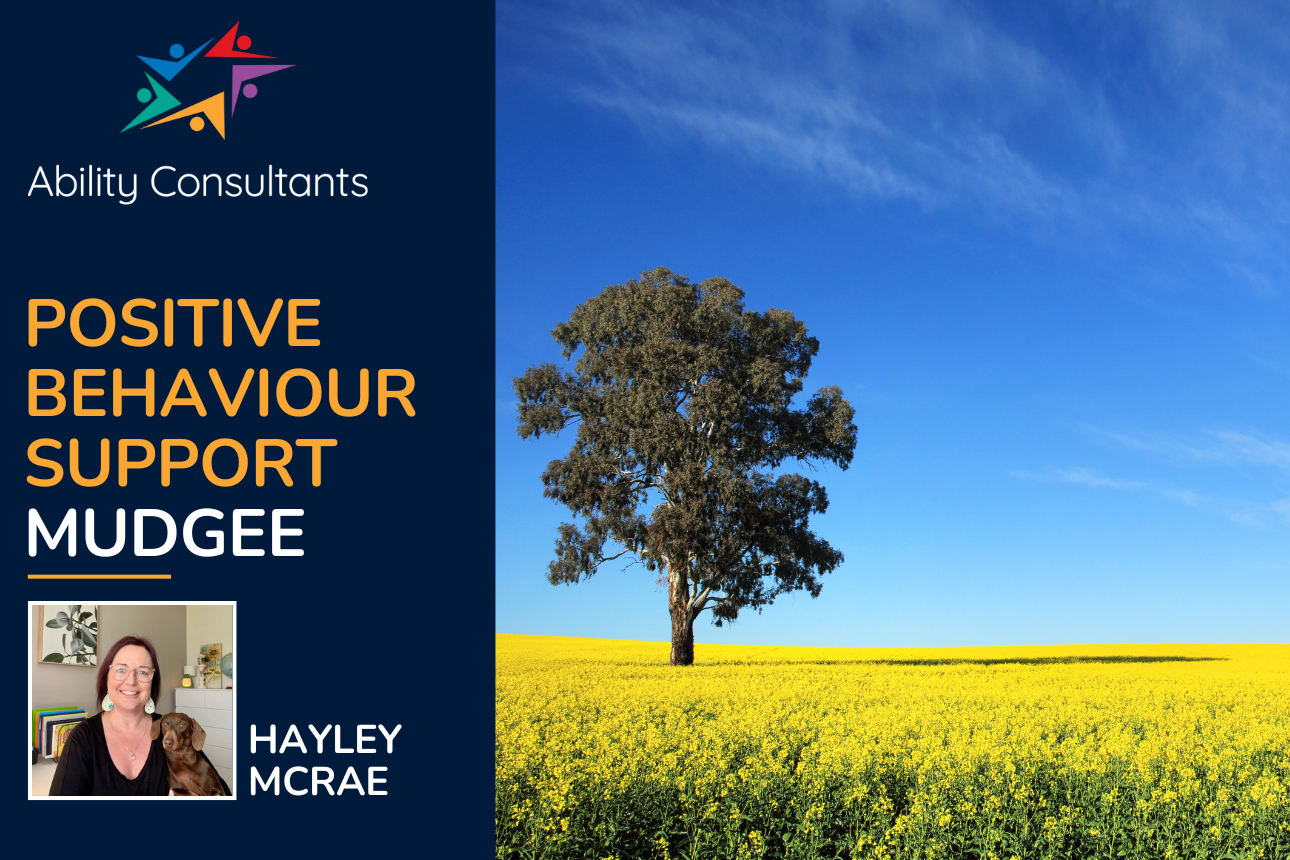
Hayley McRae, Behaviour Support Practitioner and Team Leader, Mudgee NSW
Hi Hayley! We’ve been supporting NDIS participants in NSW’s metropolitan area for a few years now and we expanded into the Central West a couple of years ago. How did you feel opening up our services in a new region?
I had collaborated with several organisations that provide Positive Behaviour Support services in our area, and found when clients had chosen Ability Consultants, the service was person-centred, and really used a strengths-based approach.
Given that these are elements that I have always found crucial when working with people with disabilities, it felt like an opportunity to continue to make a difference. Stepping into a new role, but being able to bring my ethics and beliefs that align with the company made it rewarding from day one.
Are there particular challenges NDIS participants face in the Central West?
There sure are — face to face services are limited, so “choice and control” isn't as embodied out here. There are also long waiting lists which means participants are not able to access supports as quickly as they need. At Ability Consultants, we have simplified a lot of ways for people to access us, and for us to be able to facilitate collaboration for better outcomes for our participants and other stakeholders as well.
How do you help participants overcome these challenges?
Having a network of people in the industry that are like-minded and being able to recommend clients and their families to them has definitely been beneficial. Often when we meet families, they are in crisis, and feel very helpless, sometimes being able to connect them a bit more helps them feel less isolated.
I also receive a lot of support from Ability Consultants as an organisation with professional development and peer interaction, which means I am always able to draw on other people's experience and use innovative ways to help participants reach their goals and improve their quality of life.
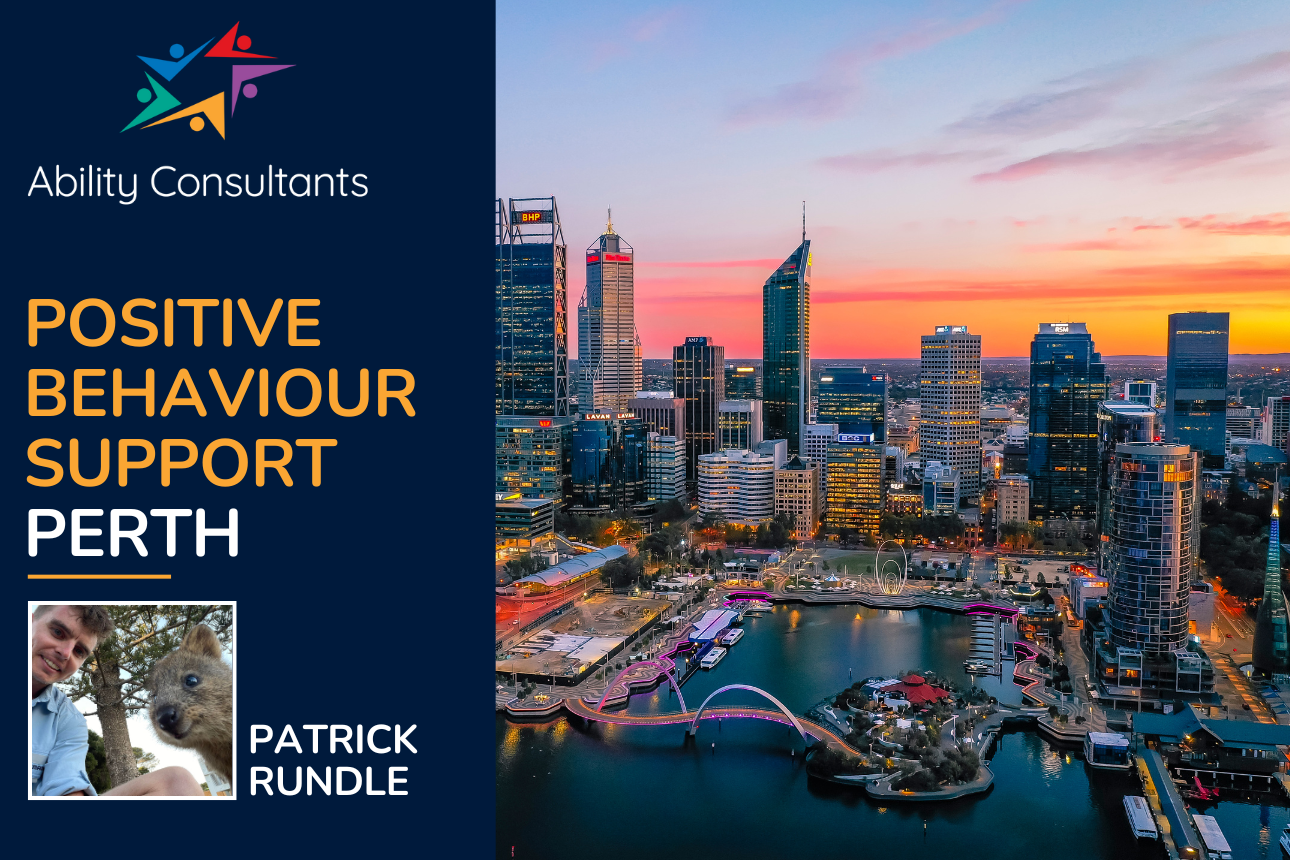
Patrick Rundle, Behaviour Support Practitioner, Perth, WA
Hi Patrick! For a while, you were the only member of our clinical team in Western Australia. What support have you received and how has this helped you find your feet in WA?
I’ve been supported throughout my time at Ability Consultants through weekly video calls with my mentor, a talented PBS practitioner in Sydney. This gave me the flexibility to work in a dynamic and complex industry while also being pushed to strive to create excellent behaviour support plans for the wonderful clients I have in Perth. I was also lucky to be exposed to the organisation's depth and breadth of support in its regular Restrictive Practice advisory group and this Regional Champions group to help kick start our growth in WA.
When it comes to the NDIS and Positive Behaviour Support, what’s unique about Perth?
Perth is a unique place in Australia as we are a state that had its own WA NDIS. You can see the impact when meeting other organisations with strong roots and connections to the WA disability community. We are approaching clients in the same way with Positive Behaviour Support, setting up expectations that we are here to stay and want to help you in any way we can.
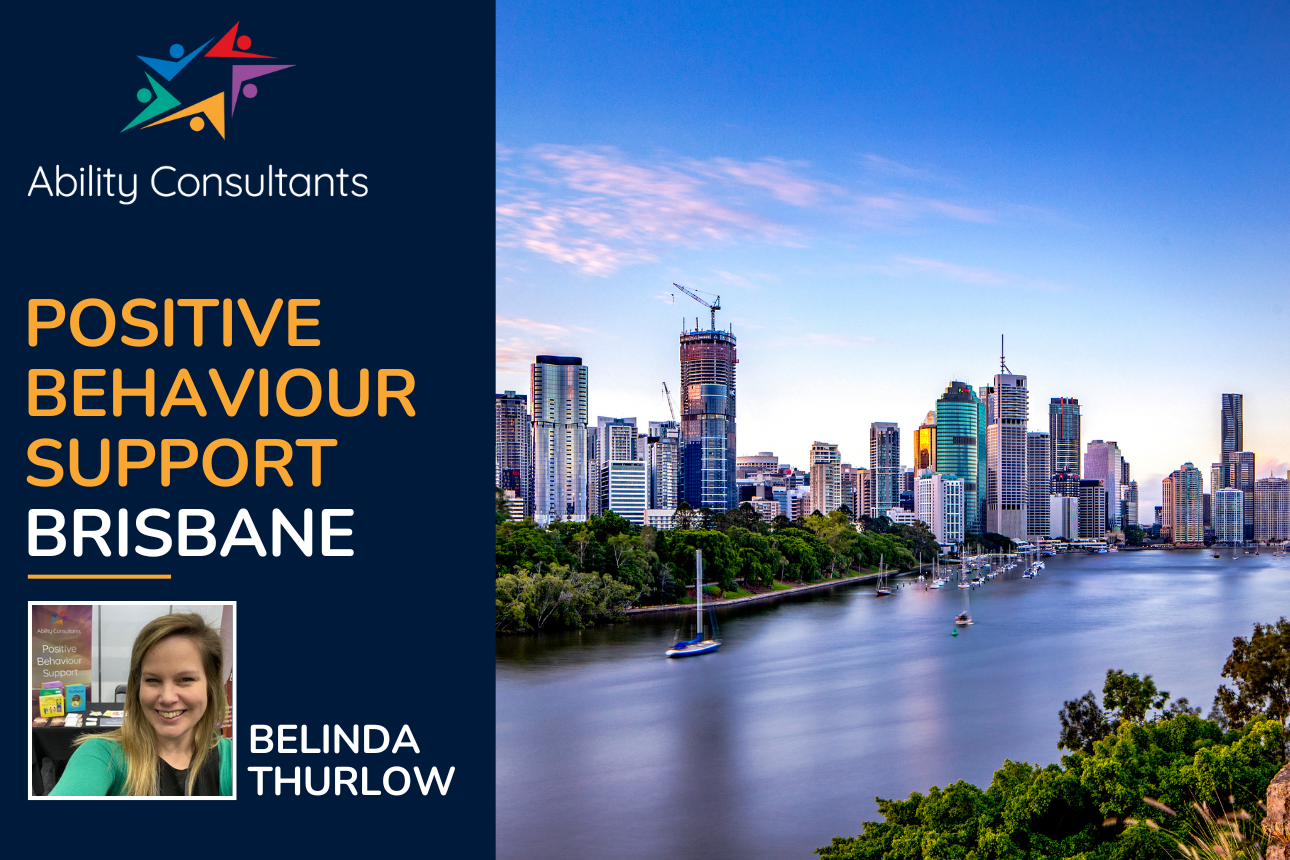
Belinda Thurlow, Business Development Manager
Belinda, you’re leading our Regional Champions with a strategic vision that is focused on integrity and human connection. Why is this focus important and what does this look like?
It’s important because it means we focus on attraction, not promotion. This translates into us investing in a person who is already in the community and passionate about connecting and providing service. It also keeps us do what we do best — meet people.
It’s clear from families and providers who we meet, that our presence is valued early on, even if we don't have all of the answers. I think by coming alongside people in this way, we show that we are respectful of complicated life situations, and that we were there to help.
With practitioners spread across Australia, what leadership opportunities are available to practitioners in new areas?
We practise empowering leadership to build clinical competence, networking skills and to establish team leaders.
By establishing team leaders in a region, we are allowing growth to happen locally — even though we do have the means to support a practitioner with a team leader from outside their region.
In other words, we keep people doing what they do and love best — building practice around person-centredness, not a rigid set of targets that don’t align with the region.
With all this support for our PBS practitioners around Australia, how does this impact on NDIS participants, their families and support teams?
It means that we do, and continue to do the leg work, so our people can focus on their community, and the work.
Any last words?
Hope to meet you, or have a conversation!
Get started with Positive Behaviour Support in Australia
If you need Positive Behaviour Support in Australia, please feel welcome to get in touch or make a referral. You can make a referral on our website anytime. You can also contact us online or phone our team on 1300 694 625.
For more information about Positive Behaviour Support, behaviour support plans or NDIS funding, these articles might be useful:
- What is Positive Behaviour Support?
- What is a behaviour support plan?
- NDIS funding and Positive Behaviour Support
- About Ability Consultants
- Behaviour support practitioner profiles
Here's a great video explaining Positive Behaviour Support:

